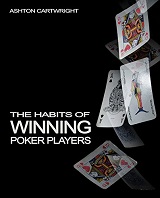Is Poker Income Taxable in Australia?

It’s tax time, so I thought I would clear up this often-misunderstood area of taxation.
In the poker community, whether or not your winnings are taxed is a common topic of debate. There is a lot of misinformation that circulates and is treated as gospel, just as there is a lot of legitimate information that is often overlooked, or hard to find.
Partially this is because taxation is generally considered to be about as interesting washing the dishes, and partially because it can be difficult to understand which aspects of the Australian taxation legislation actually apply to poker. Here we will clear that all up.
Firstly the disclaimers: Though I have previously worked for the Australian Taxation Office for a period of several years, I am not currently employed by them, nor am I a CPA, Tax Agent, Financial Planner, Forensic Accountant, Investment Advisor or anything else even slightly official sounding or relevant. Also, this post obviously doesn’t take into account your personal tax situation, your level of involvement in the poker industry, your hair colour, your favourite car, or anything else whatsoever. Don’t go acting like an idiot with the Tax Office and then complain that it’s my fault for giving you bad advice. I’m not giving anyone any advice. I’m just going through some information that’s publicly available. That’s it. Go see your accountant or tax agent if you have any concerns! That’s what you pay him for.
There. Now that’s out of the way, let’s get into the information on this matter that is publicly available on the Australian Taxation Office (ATO) website. (Warning, this will involve a little bit of a taxation litigation history lesson!)
IT 2655 INCOME TAX : BETTING AND GAMBLING
In 1989, the ATO claimed that three separate people should pay money on the income they earned from gambling, in these instances from horse racing. The issue in each of these cases was whether a taxpayer with no businesslike connection with the racing industry (e.g. as a trainer or breeder of horses) was carrying on a “business” of betting or gambling on races, of if they were just regular punters. The cases ended up in the Federal Court and ultimately all the cases were dismissed, as the judge in each of the cases ruled that even though the punters were betting large quantities (sometimes hundreds of thousands of dollars on a single race), the bets were placed in ways that were “inconsistent with the money-making, systematic, businesslike character which is an essential ingredient in the carrying on of a business”.
In 1991, the Commissioner of Taxation issued an Income Tax ruling regarding the results of these Federal cases, and this helped to clarify the Tax Office’s position regarding gambling as a business.
The Commissioner discussed the rulings in each of the three cases, and then stated in point number 6:
6. The Commissioner accepts that it is possible for a mere punter to be carrying on a business of betting or gambling but considers that it will be rare for a taxpayer with no connection with racing other than betting to be carrying on a business of betting or gambling.
In the two subsequent points he outlined the ATO’s position on such matters:
7. Ultimately each case will depend on its own facts. There is no Australian case in which the winnings of a mere punter have been held to be assessable (or the losses deductible). As Hill J stated in Babka, although mere punting may constitute a business, “the intrusion of chance into the activity as a predominant ingredient” will generally preclude such a finding. If a taxpayer is involved in other business activities in the racing industry, it will be more likely that betting activities are of a business nature.
8. The criteria summarized in Brajkovich and the factors considered in Evans and Babka should be taken into account in determining whether a taxpayer is carrying on a business of betting or gambling.
A very relevant part of this directive is “There is no Australian case in which the winnings of a mere punter have been held to be assessable (or the losses deductible).”
For those readers who are really serious about it, the complete ruling can be found here: IT 2655 INCOME TAX : BETTING AND GAMBLING – WHETHER TAXPAYER CARRYING ON BUSINESS OF BETTING OR GAMBLING. It makes for technical, but interesting reading. 🙂
Even though these court cases were to do with gambling in the racing industry, does poker fall into the same general category of gambling? After all, poker is a game where your choices CAN have an effect on the outcome, even though luck still plays a predominant part. How can we clarify the Tax Office’s position on poker specifically?
Well, luckily there is a way to get that clarification. In Australia, if you believe that your personal taxation situation is so ambiguous, you can apply to the tax office for what is called a “Private Ruling”. If you request a private ruling, someone from the tax office will (after a moderate length of time) assess your personal situation and rule on how the taxation legislation applies to it. Once a ruling has been made, that ruling becomes public record (except for your name and personal details of course). The Private Ruling does not necessarily apply to everyone, but it is a record of the decision that was made based on the information provided. If your situation is the same, then the interpretation of the tax legislation will be the same. An excellent (and recent) private ruling which takes into account the 2012 financial year is Private Ruling Number 91541. The information provided by the taxpayer (who is a full time poker player) is as follows:
Private Ruling Number 91541
You commenced playing a gaming activity on a social basis in 2001.
In 2008, you ceased your employment and commenced playing that gaming activity as your sole source of income.
You partake in online ‘cash games’ and participate in tournaments.
You continue to participate in weekly social games for no consideration.
You derive an overall net profit from your gambling activities as the income from the cash games exceed the losses sustained from the tournaments.
During a six month period in the 2009 income year you earned over $50,000 (USD) from online cash games and over $20,000 in ‘rakebacks’ / bonuses.
You use computer software to analyze your own game. You advised that this software has no effect on the element of chance and does not give you a special advantage over your fellow players.
You keep track of your wins and losses.
You receive monthly reports regarding your earnings derived from rakebacks and bonuses.
You do not maintain a home office. You do not employ staff or maintain a website.
You do not derive any income from associated industry activities.
The Tax Office needed to rule on four separate points:
1. Are you carrying on a business of gambling?
2. Is the income you receive from your gambling activities assessable?
3. Are you entitled to claim a deduction in relation to your gambling expenses?
4. Will any capital gains or capital losses made from your gambling activities be disregarded?
And the ruling came back as follows:
Ruling:
1. Are you carrying on a business of gambling?
No.
2. Is the income you receive from your gambling activities assessable?
No.
3. Are you entitled to claim a deduction in relation to your gambling expenses?
No.
4. Will any capital gains or capital losses made from your gambling activities be disregarded?
Yes.
To read the entire ruling you can click here: Private Ruling Number 91541
The main points are “carrying on a business of betting or gambling”. This is the phrase that is the crux of the matter, and is also the most confusing too. Here are some examples:
Example 1
Tom played just 5 tournaments this year, and made about $2,000 profit, but he isn’t sure because he doesn’t record his results. He sometimes drives to different states to compete in big events. Is he carrying on a business of betting or gambling?
Example 2
Bob plays poker full time. He has had a really good year and won several major events online. He uses online software to record his hands so that he can look over them again and analyze his plays. He records his results so that he can see which types of games he is most profitable in. Along with the $50,000 profit he made this year, he also earned enough frequent player points and rakeback to get a bonus cheque for $30,000. Is he carrying on a business of betting or gambling?
Example 3
Fred plays poker all day, every day. He gets coached by famous poker players. He competes in all the biggest games. He buys and studies all the books on poker. He watches the videos. He reads the blogs of other poker players. He keeps track of his wins and losses. When he plays online he plays 20 tables at a time. He uses Pokertracker to record the hands he plays, and to help him keep track of the other players’ actions. This year, Fred bought into over $500,000 worth of tournaments. Unfortunately Fred isn’t very good, and made a net loss of $100,000 this year. Can he claim his losses as a tax deduction? If he won, would he have to pay tax on his winnings? Is he carrying on a business of betting or gambling?
Interestingly, the answer for all these players is almost certainly NO. None of these players are carrying on a business of betting or gambling.
Recording your wins and losses, does not, in and of itself, indicate you are carrying on a business of betting or gambling.
Getting rakeback, or using some forms of software to analyze your play doesn’t mean you are carrying on a business of betting or gambling.
And playing for large sums of money, or buying in for large sums of money does not in and of itself mean you are carrying on a business of betting or gambling. For some people, betting a million dollars a year on sports or poker or the horses is pocket change, even though to many of us that is quite a sizable sum. But, based on the directive from the Commissioner, the size of the wagered amounts does not in and of itself imply that a person is carrying on a business of betting or gambling.
WHY isn’t poker income generally taxable?
In Australia, if the income can be taxed, then any losses are usually tax deductible. The legislation that applies to this is Section 51(1) of the Income Tax Assessment Act, as follows:
51(1) [Deductions for losses and outgoings]
ITAA 97All losses and outgoings to the extent to which they are incurred in gaining or producing the assessable income, or are necessarily incurred in carrying on a business for the purpose of gaining or producing such income, shall be allowable deductions except to the extent to which they are losses or outgoings of capital, or of a capital, private or domestic nature, or are incurred in relation to the gaining or production of exempt income.
(You can find the legislation on the ATO website here:INCOME TAX ASSESSMENT ACT Section 51)
This means that if the ATO tried to actively tax the very small percentage of people who consistently win at poker, they would have to give deductions to people for poker losses too. . . and since more people lose money from poker than make money from poker (just like all gambling), this would result in huge net LOSSES for the tax office.
It would be a complete farce. All of a sudden, everyone who loses significantly on any form of gambling would be listing themselves as a professional gambler, and claiming huge deductions come tax time. The ATO knows this, which is why there has been no significant push to make gambling income taxable.
The only group that consistently wins money from gambling is those entities that ARE actually in the business of gambling: the casinos, the clubs who own pokies, and the online sport betting companies, and you better believe that THOSE companies get taxed! Being in the business of gambling makes money, and so they pay tax on the money they make. An individual playing pokies, betting on horses, gambling on a football team, or playing poker, just isn’t a business. Casinos never lose. Poker players, even the really good ones, CAN still lose. And the ATO understands this.
There is skill involved in poker, which is why it is easy to believe that good players always win and the bad players always lose, but the fact of the matter is that in any one hand, or tournament, or session, or month, or year, luck will play a significant role in whether you make money or lose money. Poker players call it “variance”, but the Tax Office correctly understands that this “variance” is largely beyond the control of the players, making the results luck based to a significant degree.
So there you go. I would like to reiterate that I am NOT in any way providing anyone with financial advice. You should ALWAYS talk to a professional tax agent or someone from the ATO if you have questions to ask.
If this article has been of any use to you, feel free to share it on Facebook, or join my newsletter down below. Cheers!



 Follow
Follow